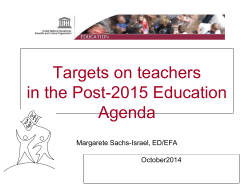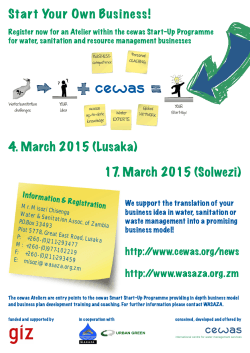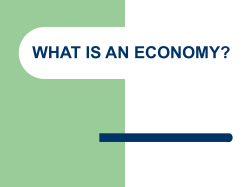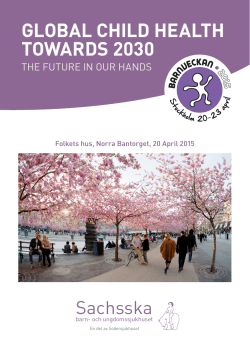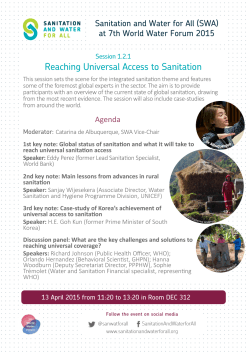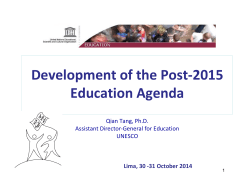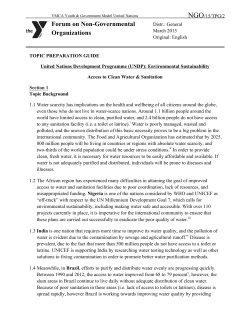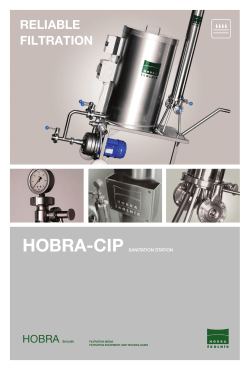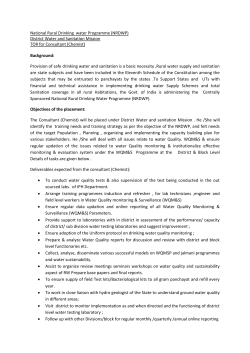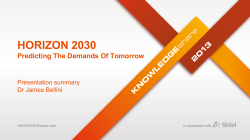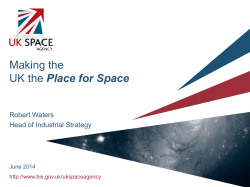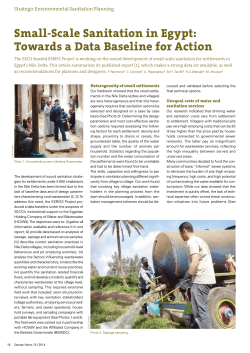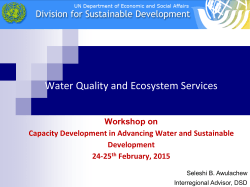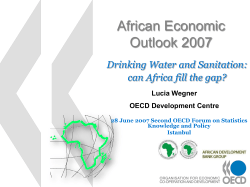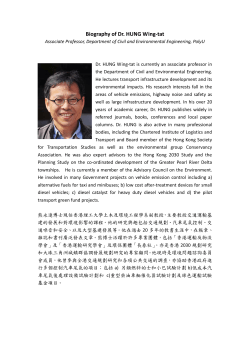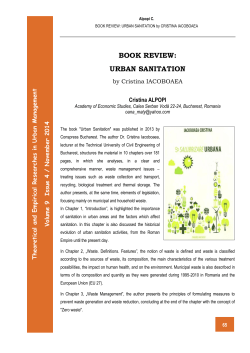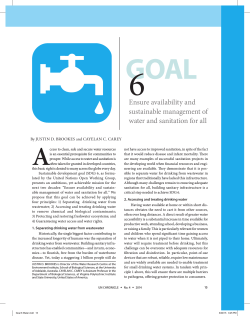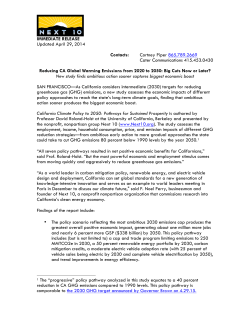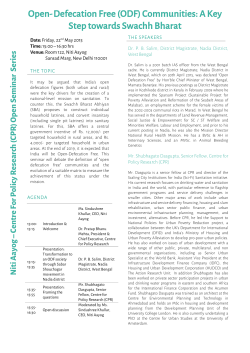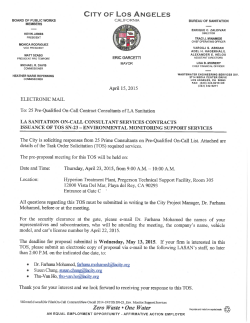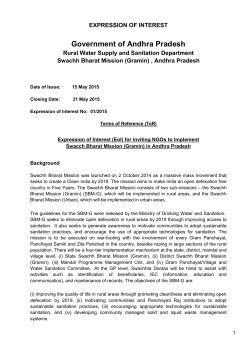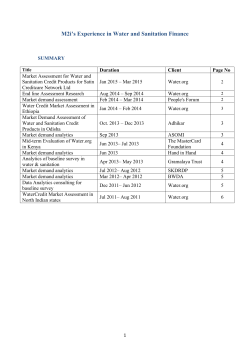
1.61M
Csaba Kőrösi, Director, Office of the President of the Republic The World Changes Abruptly It is easy to think that the state of a system changes smoothly with a change in its driver. Economic context Changing development trajectory: reshaping markets, rules of the game. („Pulling up the ladder?”) Short term competitiveness vs. burdens of transformation. Desire to stop reduce of inequalities (between whom?) Rethink the roles of governments and markets – regulation, taxation, cooperation, encouragement of R&D, ODA, capitalism? Lessons Learned New development paradigm needed. Transformation cannot be a zero sum game. Think in systems not silos. Progress on individual goals may not be enough if supporting systems (environmental, financial, social, economic) are cracking. Stand-alone goals may create bubbles that will burst. SDG on water should be deeply integrated into other SDGs. SD is not a business as usual scenario with expensive adds-on. Integrated Agenda What Is Your Main Concern? Access to safe/ improved drinking water? Availability of toilets? (Water, health or infrastructure?) Water pollution? Water efficiency? Water for people? Business? Nature? IWRM? Water for now? Next generations? My water? Your water? Trans-boundary cooperation? Disaster risk reduction? Human rights based supply: is it free? Who will foot the bill? Goal 6. Ensure availability and sustainable management of water and sanitation for all 6.1 by 2030, achieve universal and equitable access to safe and affordable drinking water for all 6.2 by 2030, achieve access to adequate and equitable sanitation and hygiene for all, and end open defecation, paying special attention to the needs of women and girls and those in vulnerable situations 6.3 by 2030, improve water quality by reducing pollution, eliminating dumping and minimizing release of hazardous chemicals and materials, halving the proportion of untreated wastewater, and increasing recycling and safe reuse by x% globally 6.4 by 2030, substantially increase water-use efficiency across all sectors and ensure sustainable withdrawals and supply of freshwater to address water scarcity, and substantially reduce the number of people suffering from water scarcity 6.5 by 2030 implement integrated water resources management at all levels, including through transboundary cooperation as appropriate 6.6 by 2020 protect and restore water-related ecosystems, including mountains, forests, wetlands, rivers, aquifers and lakes Goal 6. Ensure availability and sustainable management of water and sanitation for all 6.a by 2030, expand international cooperation and capacity- building support to developing countries in water and sanitation related activities and programmes, including water harvesting, desalination, water efficiency, wastewater treatment, recycling and reuse technologies 6.b support and strengthen the participation of local communities for improving water and sanitation management The Mainstreaming of Water 27 targets in 9 SDGs related to water Goal 1. End poverty in all its forms everywhere Goal 2. End hunger, achieve food security and improved nutrition, and promote sustainable agriculture Goal 9. Build resilient infrastructure, promote inclusive and sustainable industrialization and foster innovation Goal 11. Make cities and human settlements inclusive, safe, resilient and sustainable The Mainstreaming of Water Goal 12. Ensure sustainable consumption and production patterns Goal 13. Take urgent action to combat climate change and its impacts Goal 15. Protect, restore and promote sustainable use of terrestrial ecosystems, sustainably manage forests, combat desertification, and halt and reverse land degradation and halt biodiversity loss Big Water Goal: Follow the Water Cycle! THANK YOU FOR YOUR ATTENTION!
© Copyright 2025
